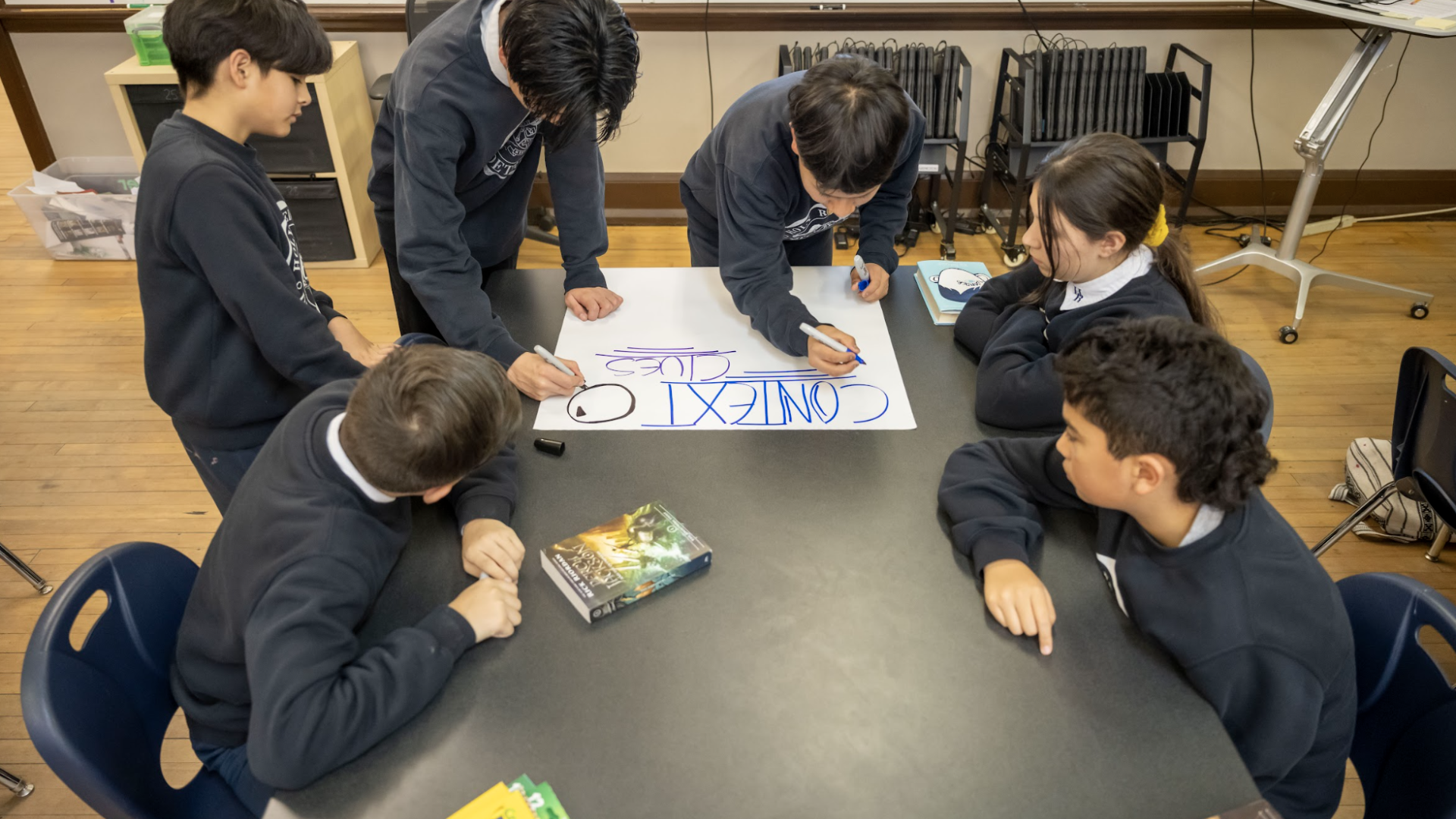As the end of the year approaches, students and teachers alike are bound to daydream of the impending golden beams of sunshine, refreshingly crisp watermelon slices, and countless days of rest and relaxation that come with summer break. While these musings of a summer oasis will certainly cloud some of the cognitive bandwidth left in our students, we teachers must find ways to engage our students and tap into the valuable instructional time that remains in the final weeks of the year. How, though? This task is certainly easier said than done, so here are some thematic recommendations for keeping your class engaged and interested even as their thirst for snow cones and swimming pools reaches its peak.
1. Course Questions
Just as we start our course planning with an opening thematic question, ending the year by returning back to this guiding question is an effective way to close that circle of learning drawn throughout the year. This intentional return to the beginning underscores the overarching idea of the course and pulls together all of the meaningful work that has bloomed from that opening question back into its origin. Thus, this grounding strategy can tie together the loose ends of a course in a neat bow that illuminates major takeaways in a concise manner for students. For example, in my freshman Ancient Literature course, the essential question is "What does it mean to be a hero in the ancient world?" Following months of discussion regarding Achilles' honor, Odysseus' travels, and Antigone's familial code, this course's culminating major assessment asks students to evaluate their own conception of an ideal hero with the conception present in the ancient world. Therefore, it engages students in a meaningful, course-appropriate task that effectively closes the cognitive circle and harnesses those flickering embers of student motivation.
2. Synthesize, Evaluate, and Create
As an outspoken opponent of Bloom's Taxonomy, I was initially hesitant to revert to those rigid verbs for this subsection's title, yet Bloom's higher-order thinking skills of synthesizing, evaluating, and creating are exactly the type of tasks ripe for harvest at the end of the school year. So much of the year is spent laying the groundwork for these skills, so it is only fitting that teachers task their students with assignments that tap into them as the school year concludes. Orienting final class time to work on a final research project and presentation, engage in a DIY science experiment, or evaluate central course themes are effective ways to meaningfully engage students and close out the year with a purpose.
3. (Re)Establish Purpose
In order to construct spaces with optimal learning potential, teachers must establish the explicit purpose of tasks for the sake of student understanding, motivation, and ultimate success. While waiting until the end of the year to establish purpose in the classroom is not a best practice, reestablishing that purpose forcefully through explicit conversation is a great way to illuminate to students how the content and skills learned throughout the year shine through the classroom's walls.
4. Past, Present, and Future
Reflect, breathe, and set goals. Providing time for meaningful reflection over the school year is a great way to conclude key discussions and provide students with space to think deeply about the work they have done. Further, goal-setting can motivate students moving into summer break and can prompt the critical self-reflection necessary for their moral character development. Finally, in between this return to the past and an eye for the future, reminding students to close their eyes, take a breath, stretch, and soak in the nowness of the present moment is a great grounding mechanism to bring peace in a time of change and transition.
The above tips serve as broad guides appropriate for the variety of classrooms in which we serve. I hope that these tips both provide some insight into how I structure my own classroom in the final weeks as well as motivate you to effectively utilize those few hours of instructional time left for the academic success of your students. Have a great summer, everyone.
 Alliance for Catholic Education
Alliance for Catholic Education
